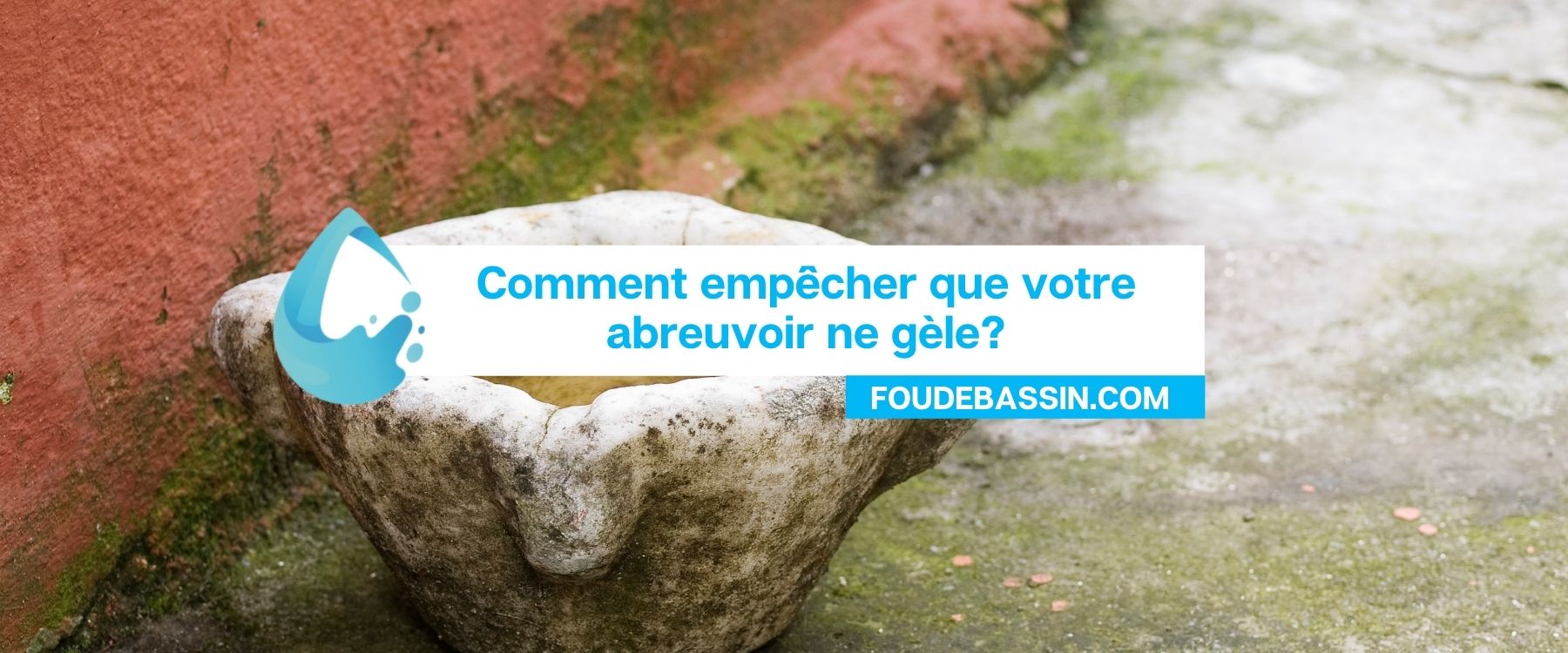Retrouvez ici les indispensables et meilleures ventes pour nos propriétaires de bassin.
Retrouvez ici les indispensables et meilleures ventes pour nos propriétaires de bassin.

In winter, when the temperature drops below 0°C, water in water troughs, rainwater tanks and other containers tends to freeze. Breaking the ice daily can be tedious and energy-consuming. Discover in this article some effective techniques to prevent the water in your water troughs from freezing, whether you are a chicken farmer, horse owner or other animal owner.
A simple and economical solution is to make a float from a plastic bottle. This method is particularly suitable for small waterers. If the waterer is too large, opt instead for a specific anti-freeze bell, which is often less expensive than a homemade one.
Here are the steps to follow:

Another effective option is to use a frost-proof bell, which you can make yourself or buy ready-made.
For a DIY frost bell you will need:
Here are the manufacturing steps:
Opt for a large waterer rather than a small bucket. The larger the volume of water, the less quickly it will freeze. Also, place the waterer in the sun during the day so it gets the most heat, reducing the risk of nighttime freezing.

Most chickens do not drink at night. Empty the water from the waterer at bedtime and provide fresh water in the morning to prevent freezing.
Invest in frost-proof trays that sit on top of the waterer and diffuse heat without warming the water.
A heating disc, placed under the waterer, can provide enough heat to prevent the water from freezing.
It is recommended to put in place antifreeze solutions as soon as temperatures drop below 0°C for a prolonged period, generally at night.
Yes, these methods are suitable for most livestock, such as chickens, ducks, horses, cattle, etc. Just be sure to adjust the size of the waterer and anti-freeze devices according to the species concerned.
It is not recommended to add salt directly to your pets' drinking water as it may harm their health. Salt should only be used in the plastic bottle float to lower the freezing point of the water inside.
By applying these techniques and following our advice, you can effectively protect your waterers from winter frost and ensure your animals have constant access to water. To discover other tips for maintaining and managing your livestock, don't hesitate to browse our blog!
Aquipond Greenstab - Natural treatment against pond algae It is a natural product that helps limit algae at any time. It also has a prevent...
View full detailsReduces the layer of silt in the pond by at least 40% Easy to use with less impact on biodiversity Prevents fermentation, bad odors. pH ...
View full detailsOrganic dye to block plant growth by limiting photosynthesis ORGANIC PRODUCT NON TOXIC TO HUMANS (DIVING) AND FISH. 100% NATURAL AND BIODE...
View full detailsThe positive effects of barley straw have been known to water enthusiasts for a long time. But currently barley straw is difficult to find and i...
View full detailsReduces at least 40% of the layer of silt in the pond Easy to use with less impact on biodiversity Prevents fermentation, bad odors. ...
View full details
Comments
Leave a comment